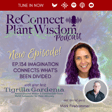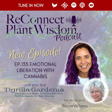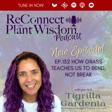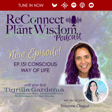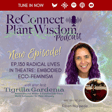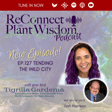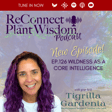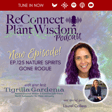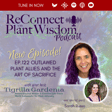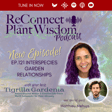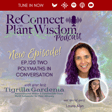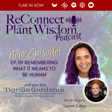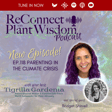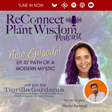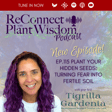
Ep.124 Live Like A Plant: Finding Your Essential Nature with Mary Rothwell | ReConnect with Plant Wisdom
What if living authentically was as natural as a plant growing in its right soil? In this episode, I sit down with therapist and podcaster Mary Rothwell to explore what plants can teach us about self-acceptance, adaptation, and finding your true nature.
What You’ll Learn
🌱 Why every plant—and every person—has an essential nature.
🌱 How to reframe limiting beliefs as “bodyguards” you can befriend and release.
🌱 Why authenticity means honoring your cycles, not constant blooming.
🌱 How therapy + coaching can complement each other in reclaiming your true self.
✨ Resources ✨
🌱 Expanded Show Notes
🌱 Join the Naturally Conscious Community
🌱 Mary Rothwell’s podcast: No Shrinking Violets
🌱 Mary’s Live Like a Plant quiz
👤 Guest Spotlight: Mary Rothwell of Mary Rothwell Integrative Wellness
Mary Rothwell is a licensed therapist, certified integrative mental health practitioner, and certified forest therapy practitioner. With 35+ years of experience, she combines traditional therapy with a holistic, whole-body framework rooted in nature. She coaches women on sleep and wellbeing in menopause, and hosts the podcast No Shrinking Violets. Her upcoming book, Live Like a Plant, and her interactive quiz help women rediscover their essential nature, break free from limiting narratives, and take up the space they were born to inhabit.
✨ Chapters ✨
00:00 Introduction
08:10 Essential Nature & Belief
16:30 Plasticity & Acceptance
24:45 Self-Awareness Tools
32:55 Natural Rhythms
40:17 Ad: Music of Plants
49:30 Plant Types & Self-Quiz
57:30 Closing & Community
🔗 Connect & Explore More
🌿 Website
🌿 Contact
🌿 Shop Eco-Conscious Partners
Socials
📸 Instagram
📘 Facebook
💼 LinkedIn
▶️ YouTube
🎵 Credits
Opening + Closing music by @Cyberinga and Poinsettia

